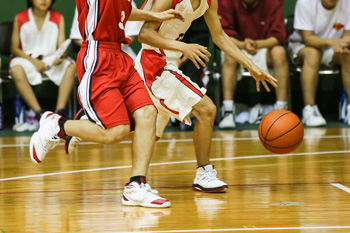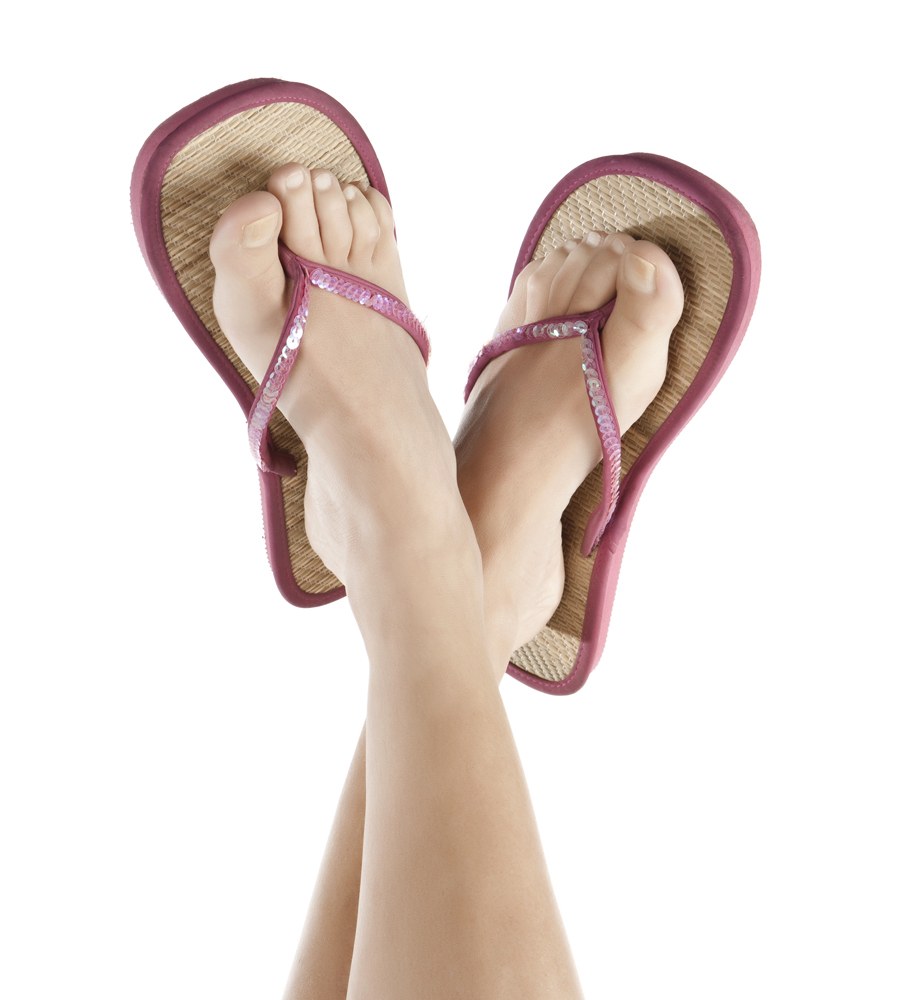
Freehold (732) 294-9393

Freehold (732) 294-9393
 There are a number of health conditions that are affiliated with obesity. Swollen feet and varicose veins are common in obese people. Additionally, painful conditions such as cracked heels can also occur from obesity due to excessive pressure on the area. Obesity generally also contributes to diabetes, which can affect the nerves in the feet. Subsequently, patients are often unable to feel cuts or blisters, which may lead to foot ulcers. Poor balance may occur as a result of strained walking, which typically leads to falls and injury. Additionally, flat feet can develop, which may lead to conditions like plantar fasciitis. Following a healthy diet that is low in sugar may help control obesity. Maintaining a regular exercise program will aid in keeping obesity under control. Typically, obesity leads to feet that are wider than average, so look for shoes that fit properly. A podiatrist can conduct a foot examination and provide tips on obesity and how it affects the feet.
There are a number of health conditions that are affiliated with obesity. Swollen feet and varicose veins are common in obese people. Additionally, painful conditions such as cracked heels can also occur from obesity due to excessive pressure on the area. Obesity generally also contributes to diabetes, which can affect the nerves in the feet. Subsequently, patients are often unable to feel cuts or blisters, which may lead to foot ulcers. Poor balance may occur as a result of strained walking, which typically leads to falls and injury. Additionally, flat feet can develop, which may lead to conditions like plantar fasciitis. Following a healthy diet that is low in sugar may help control obesity. Maintaining a regular exercise program will aid in keeping obesity under control. Typically, obesity leads to feet that are wider than average, so look for shoes that fit properly. A podiatrist can conduct a foot examination and provide tips on obesity and how it affects the feet.
Obesity has become very problematic at this point in time and can have extremely negative effects on the feet. If you’re an obese individual and are concerned about your feet, contact Dr. Henry Miller from New Jersey. Our doctor can provide the care you need to keep you pain-free and on your feet.
Obesity and Your Feet
Since your feet are what support your entire weight when standing, any additional weight can result in pain and swelling. Being overweight is one of the main contributors to foot complications.
Problems & Complications
Extra Weight – Even putting on just a few extra pounds could create serious complications for your feet. As your weight increases, your balance and body will shift, creating new stresses on your feet. This uneven weight distribution can cause pain, even while doing the simplest tasks, such as walking.
Diabetes – People who are overweight are at serious risk of developing type-2 diabetes, which has a drastic impact on the health of your feet. As you get older, your diabetes might worsen, which could lead to loss of feeling in your feet, sores, and bruises. You could also become more prone to various infections.
Plantar fasciitis – Pressure and stress that is placed on muscles, joints, and tendons can trigger plantar fasciitis, which is an inflammation of tissue that forms along the bottom of the foot.
If you have any questions please feel free to contact our office located in Freehold, NJ . We offer the newest diagnostic and treatment technologies for all your foot and ankle needs.
 University of Central Florida (UCF) Knights point guard B.J. Taylor has suffered a bone fracture in his foot. Coach Dawkins announced that Taylor will miss between four to six weeks. Taylor’s injury is a further strain on the Knights, as two other players also suffered recent injuries. While the injury is unfortunate, it is not a season-ending one; he is expected to return.
University of Central Florida (UCF) Knights point guard B.J. Taylor has suffered a bone fracture in his foot. Coach Dawkins announced that Taylor will miss between four to six weeks. Taylor’s injury is a further strain on the Knights, as two other players also suffered recent injuries. While the injury is unfortunate, it is not a season-ending one; he is expected to return.
Sports related foot and ankle injuries require proper treatment before players can go back to their regular routines. For more information, contact Dr. Henry Miller of New Jersey. Our doctor can provide the care you need to keep you pain-free and on your feet.
Sports Related Foot and Ankle Injuries
Foot and ankle injuries are a common occurrence when it comes to athletes of any sport. While many athletes dismiss the initial aches and pains, the truth is that ignoring potential foot and ankle injuries can lead to serious problems. As athletes continue to place pressure and strain the area further, a mild injury can turn into something as serious as a rupture and may lead to a permanent disability. There are many factors that contribute to sports related foot and ankle injuries, which include failure to warm up properly, not providing support or wearing bad footwear. Common injuries and conditions athletes face, including:
Sports related injuries are commonly treated using the RICE method. This includes rest, applying ice to the injured area, compression and elevating the ankle. More serious sprains and injuries may require surgery, which could include arthroscopic and reconstructive surgery. Rehabilitation and therapy may also be required in order to get any recovering athlete to become fully functional again. Any unusual aches and pains an athlete sustains must be evaluated by a licensed, reputable medical professional.
If you have any questions please feel free to contact our office located in Freehold, NJ . We offer the newest diagnostic and treatment technologies for all your foot and ankle needs.
 It can be painful to walk for those who have rheumatoid arthritis. A large percentage of people diagnosed with this disease may experience pain in their ankles and joints at some point in their lives. Common symptoms may include tenderness, swelling, and difficulty bending the foot. Emotional symptoms may also occur, including feelings of helplessness, anxiety and depression. Excessive fatigue may be another sign of rheumatoid arthritis. When these symptoms are controlled, further damage to tissues and joints may be prevented. Proper medication, when taken correctly, can be effective in managing relief. When early treatment is initiated, the goal of remission is much more likely. Practicing low-impact exercise such as yoga, swimming or walking is beneficial in strengthening the joints and muscles.
It can be painful to walk for those who have rheumatoid arthritis. A large percentage of people diagnosed with this disease may experience pain in their ankles and joints at some point in their lives. Common symptoms may include tenderness, swelling, and difficulty bending the foot. Emotional symptoms may also occur, including feelings of helplessness, anxiety and depression. Excessive fatigue may be another sign of rheumatoid arthritis. When these symptoms are controlled, further damage to tissues and joints may be prevented. Proper medication, when taken correctly, can be effective in managing relief. When early treatment is initiated, the goal of remission is much more likely. Practicing low-impact exercise such as yoga, swimming or walking is beneficial in strengthening the joints and muscles.
Because RA affects more than just your joints, including the joints in your feet and ankles, it is important to seek early diagnosis from your podiatrist if you feel like the pain in your feet might be caused by RA. For more information, contact Dr. Henry Miller of New Jersey. Our doctor will assist you with all of your podiatric concerns.
What Is Rheumatoid Arthritis?
Rheumatoid Arthritis (RA) is an autoimmune disorder in which the body’s own immune system attacks the membranes surrounding the joints. Inflammation of the lining and eventually the destruction of the joint’s cartilage and bone occur, causing severe pain and immobility.
Rheumatoid Arthritis of the Feet
Although RA usually attacks multiple bones and joints throughout the entire body, almost 90 percent of cases result in pain in the foot or ankle area.
Symptoms
Diagnosis
Quick diagnosis of RA in the feet is important so that the podiatrist can treat the area effectively. Your doctor will ask you about your medical history, occupation, and lifestyle to determine the origin of the condition. Rheumatoid Factor tests help to determine if someone is affected by the disease.
If you have any questions please feel free to contact our office located in Freehold, NJ . We offer the newest diagnostic and treatment technologies for all your foot and ankle needs.
 Although flip flops may be convenient and easy to wear, your foot has to work much harder while walking. Sometimes the toes will curl up to keep them on, which may cause an imbalance in the foot. Since many flip flops have nothing but a flat piece of rubber for a bottom, there is very little support and the tendons can be overworked. This can lead to foot pain, so it may be to your advantage to buy high-quality flip flops made from more supportive materials. This may also help prevent sprained ankles from falling and tendinitis. Although most inexpensive flip flops are available in fun colors and designs, they are typically not very foot-friendly.
Although flip flops may be convenient and easy to wear, your foot has to work much harder while walking. Sometimes the toes will curl up to keep them on, which may cause an imbalance in the foot. Since many flip flops have nothing but a flat piece of rubber for a bottom, there is very little support and the tendons can be overworked. This can lead to foot pain, so it may be to your advantage to buy high-quality flip flops made from more supportive materials. This may also help prevent sprained ankles from falling and tendinitis. Although most inexpensive flip flops are available in fun colors and designs, they are typically not very foot-friendly.
Flip-flops are not always the best choice of footwear. If you have any concerns about your feet or ankles, contact Dr. Henry Miller from New Jersey. Our doctor will assist you with all of your foot and ankle needs.
Flip-Flops and Feet
When the weather starts warming up, people enjoy wearing flip-flops. Flip-flops are comfortable, stylish, and easy to slip on and off; they're perfect for any summer beach goer. However, these shoes can cause harm to the feet.
How Can Flip-Flops Affect Me Long-Term?
Are There Injuries Associated with Flip-Flops?
Yes. Since flip-flops are relatively weak and do not provide the same amount of support as sneakers, people who wear flip-flops regularly are more susceptible to injuries. On top of that, the open nature of the shoe makes your feet more prone to other problems, such as cuts and even infections. Common injuries and ailments include:
I like Wearing Flip-Flops. Are There Safe Alternatives?
When buying flip-flops, try to find ones that have sturdy soles and that are made of high-quality materials that will support for your feet. These flip-flops will cost more but will also last longer as a result.
If you have any questions please feel free to contact our office located in Freehold, NJ . We offer the newest diagnostic and treatment technologies for all your foot and ankle needs.